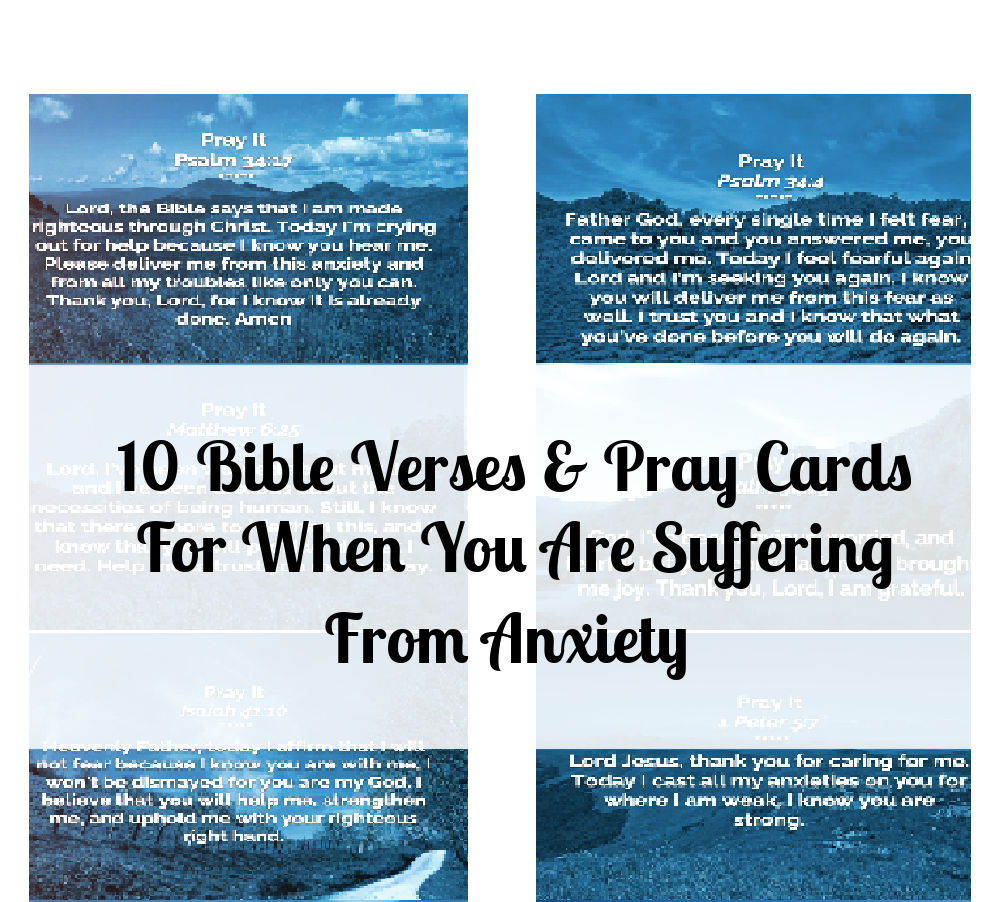
You or someone you know has most likely experienced intense wave of fear characterized that is often unexpected and, debilitating, and stops you in your tricks. When it occurs, you may suffer a racing heart, difficulty breathing, and a sense that you are dying or going insane. All of these symptoms combine to form what is known as a panic attack.
Panic episodes frequently occur unexpectedly, without warning, and sometimes without a clear trigger. As a result, many panic attack victims begin living in terror of future episodes, which can have a significant physical and mental toll. However, the majority of people who suffer from panic attacks are able to overcome them using the below strategies. Before reviewing the steps to overcome panic attacks and or panic disorder, we will do a deep dive into panic attacks.
All you have to do is follow the below tips on how to overcome panic attacks and watch God work.
How Panic Differs From Anxiety?
You may hear people refer to panic attacks and anxiety attacks interchangeably. They are, however, two distinct conditions. It is important to note, the guide book that mental health professions use to diagnosis conditions (I.e., DSM-5) does not include anxiety attacks. However, anxiety disorders and panic disorders are official diagnosis.
What exactly are anxiety disorders?
Anxiety is an unavoidable aspect of life and there are benefits of experiencing anxiety. When confronted with an issue at work, before taking a test, or before making an important decision, you may experience anxiety. Anxiety disorders, on the other hand, involve more than just brief worry or terror. Anxiety does not go away for a person suffering from an anxiety disorder, and it can worsen with time. Symptoms can disrupt daily activities such as job performance, schoolwork, and relationships.
Anxiety disorders are classified into different kinds, including generalized anxiety disorder, panic disorder, and various phobia-related disorders.
What exactly is a panic attack?
People suffering from panic disorder experience recurring, unexpected panic attacks. Panic attacks are brief bursts of acute fear that last only a few minutes. Attacks can happen abruptly or as a result of a trigger, such as a fearful object or situation.
People may feel the following physical symptoms during a panic attack:
Chest pain including - heart palpitations, a pounding heartbeat, or a rapid heartbeat which makes it feels like the person is having a heart attack
Sweating
Shaking or trembling
Shortness of breath, suffocation, or choking sensations
Fear of impending disaster and/or death
Feelings of being powerless
The DSM-5 lists two separate and distinct types of panic attacks: expected panic attacks and unexpected panic attacks. Expected panic attacks occur when you are confronted with a circumstance that has previously caused you trouble. Expected attacks are usually triggered by a phobia or by a genuinely stressful event, such as going to a medical doctor. Unexpected panic attacks occur suddenly without any obvious cause or when you cannot identify an external trigger.
People who suffer from panic disorder frequently worry about when the next attack will occur and actively strive to avoid future attacks by avoiding places, events, or behaviors that they identify with panic attacks. Panic episodes, and the effort expended to avoid them, cause substantial issues in many aspects of a person's life, including the development of agoraphobia.
People who experience too much anxiety, find it hard to trust themselves. . . others. . . and God which often leads to fear and panic.
What are the steps to dealing with panic attacks naturally?
Overcoming panic attacks requires working with your panic and anxiety symptoms, not against them. So if you feel constantly stressed and anxious, particularly about when your next panic attack may be, prayerfully begin to incorporate the below strategies in order to prevent and or copy with your next panic attacks.
Step 1: Do Some Deep Breathing
When you start to experience anxiety and/or panic attack symptoms, your breathing usually becomes shallow, fast, and irregular. This lowers your oxygen levels, which in turn causes more fear and panic.
The good news is that you can increase the oxygen your brain receives by simply taking slow, deep breaths. This simple exercise will help you regain control over how you feel.
Your diaphragm - the area of your body that gets “clenched” when you're anxious, is the area you should learn to breathe from, in order for this exercise to be effective
To breathe from your diaphragm, try this:
Lay down on your back and place a small flat object on your belly. A book would work perfectly.
Now slowly inhale through your nose to make the book go up. When you're at the top of your inhalation, hold your breath for 2 seconds.
Then exhale to make the book go down. Once the book is down hold your breath for 2 seconds before inhaling again.
Repeat this exercise 10 times and notice how carefree you feel.
You can read more about the power of breathing by reading our article on The Power of Deep Breathing for Christians.
Please note: for some people, deep breathing can make panic attacks worse. In these cases, the person can try focusing on doing something they enjoy instead
Step 2: Face Your Fear
Usually, when your anxiety begins, your first instinct is to ignore the situation or run away from whatever is causing it. Unless the situation is truly dangerous, don't do that. Choose not to leave, run away from, or ignore the thing that is causing your anxiety.
Running away may be the easy way out temporarily, but it is also the very thing that causes your anxiety to persist. Until you face your fear head-on, it will keep coming back for you.
If you find it impossible to face the fear or have experienced trauma, it may be best to talk to a trained therapist. A good Christian therapist uses many therapeutic methods to help you overcome those traumatic events, and everything remains confidential.
Step 3: Make A Note Of Your Thoughts
Thoughts during panicked situations are often distorted, and distorted thoughts always need to be challenged. That's why it's important to catch the negative and unhelpful thoughts (NUTs) in your mind and then write them down to see if they make sense.
If you find that your thoughts really are distorted, question them by writing down a more sensible variant of the same thought. You can read about the 8 most common types of NUTs and how to combat them by reading our article on Combating Negative Thoughts As A Christian.
Step 4: Tell God How You Feel.
Believe it or not, God cares about every detail of your life. He loves you and contrary to popular belief, your anxiety does not disappoint Him. He wants to hear what's on your heart and He wants to help you.
 "Cast all your anxiety on him because he cares for you." (1 Peter 5:7)
"Cast all your anxiety on him because he cares for you." (1 Peter 5:7)
“I sought the LORD, and he heard me, and delivered me from all my fears” (Psalm 34:4)
Pray if you can, but if you are too anxious to do that, consider using these prayer cards. Either way, God hears the prayers of your heart, so put your trust in Him today.
Step 5: Examine Your Suppressed Emotions.
If you find it hard to express certain kinds of emotions and choose to sweep things under the rug, your anxiety may be stemming from that. This is known as the hidden emotion theory of panic disorder.
Every time you choose not to express your feelings, they can come out indirectly—disguised as anxiety. When this happens, it's easy to lose sight of the hidden struggle or the feeling that’s really bothering you.
To examine your suppressed emotions remember to ask yourself this question; If you were not feeling anxious right now, what else would you be feeling? Asking yourself this question every time you begin to feel anxious will help you get to the root of the anxiety.
Step 6: Seek Professional Help.
If you’ve practiced all the steps above, and you're still suffering from too much anxiety, you may need to talk to a Christian Mental Health Provider.
Seeing a Christian mental health provider for psychotherapy or “talk therapy” can help people with anxiety disorders, including panic attacks. In order for psychotherapy to be effective, it must be based on the person's specific fears and tailored to meet his or her needs.
One of the most common and effect psychotherapies to treat panic attacks is Cognitive Behavioral Therapy (CBT). CBT teaches people how to think, act, and react to things and situations that make them anxious or afraid. CBT can also help people learn and practice skills to calm and regulate the central nervous system which is vital for treating a panic disorder.
Anxiety disorders can't be cured with medicine, but it can help ease their symptoms. Medications for anxiety are given by doctors, like a psychiatrist or a health care provider.
One of the most well known medications that is often prescribed for panic attacks is benzodiazepines (e.g., Xanax). Even though this medicine can help treat the symptoms of panic when they happen, it doesn't treat or cure the root cause of panic disorder, which is called panic disorder. It can also quickly become addictive, which is why it should only be used for a short time or in a crisis.
A doctor may also prescribe anti-depressants to people who need them for a longer term symptoms alleviation. Some examples include: selective serotonin reuptake inhibitors (SSRIs), such as escitalopram (Lexapro) or fluoxetine (Prozac) serotonin-norepinephrine reuptake inhibitors (SNRIs), such as duloxetine (Cymbalta) anti-anxiety to treat panic disorders.
Remember, overcoming panic and anxiety is definitely possible. God never leaves His children without hope or help. The simple steps outlined in this post can help you. You just have to believe it and diligently practice each step when the anxiety begins.
If you are looking for additional information about panic and anxiety, check out our recommendations below:
Christian - Conquer Worry and Anxiety: The Secret to Mastering Your Mind Non -Christian - When Panic Attacks (06) by MD, David D Burns [Paperback (2007)]
Non -Christian - When Panic Attacks (06) by MD, David D Burns [Paperback (2007)]![Non -Christian - When Panic Attacks (06) by MD, David D Burns [Paperback (2007)]](https://easyproductdisplays.com/wp-content/uploads/2017/07/buy5.gif) Christian - You Are More Than You Know: Face Your Fears, Grow Stronger
Christian - You Are More Than You Know: Face Your Fears, Grow Stronger Christian - Anxious: Choosing Faith in a World of Worry
Christian - Anxious: Choosing Faith in a World of Worry
About the Author:

Corine Williams, Ph.D. is Clinical Psychologist that is currently seeing clients in the States of Maryland, New Jersey, and New York. You can find out more about her practice by visiting www.therapyforchristians.com/corinewilliams. In addition to providing individual therapy, Dr. Williams is also passionate about writing books and designing merch that educate, uplift, and normalize mental health subjects in the Christian community. You can find out more about her at www.booksbycorine.com or by visiting her amazon profile here: https://www.amazon.com/Corine-Hyman/e/B00AWZ5FL2
Help us increase mental health awareness in the Christian community by donating through our paypal link here: www.paypal.com/therapyforchristians, joining our mailing list by clicking below, or join our provider list here: Provider listing
Disclaimer: the information, including but not limited to, text, graphics, images and other material contained on this article are for informational purposes only. No material on this site is intended to be a substitute for professional medical advice, diagnosis or treatment. If you are looking for a Christian counselor near you, please check out our directory located here: Christians Therapist Near Me
Featured Christian Therapists
Specialty Christian Mental Health Providers Located in Pearland, TX
View Listing.png)


![Non -Christian - When Panic Attacks (06) by MD, David D Burns [Paperback (2007)]](https://m.media-amazon.com/images/I/21hfUPTCbAL._SL500_.jpg)










